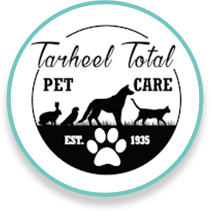When it comes to pet wellness, many pet owners feel overwhelmed by the options for care. From diet to preventive treatments, understanding what can truly enhance a pet’s quality of life isn’t always clear. With the best integrative therapies for pet health, pet parents can access solutions that complement traditional veterinary care to support holistic well-being.
The best integrative therapies for pet health include acupuncture, which can alleviate pain and improve mobility; chiropractic care, designed to enhance joint and spine health; herbal supplements that boost immune response; and massage therapy, which promotes relaxation and circulation. Each of these therapies offers unique benefits, helping pets achieve balance and resilience for optimal wellness.
- Understanding Integrative Therapies for Pet Health
- Acupuncture: Alleviate Pain and Restore Mobility
- Chiropractic Care for Pets: Enhancing Joint and Spine Health
- The Power of Herbal Supplements for Immune Support
- Integrative Therapies for Pet Health: Exploring the Best Options
- Choosing the Right Holistic Options for Your Pet
- Enhancing Your Pet’s Quality of Life Through Holistic Care
Key Takeaway:
- Integrative therapies for pet health offer a balanced approach, making them suitable for pets with diverse wellness needs.
- Acupuncture offers a gentle, effective way to manage chronic pain and increase comfort, especially for aging pets.
- Chiropractic care helps keep active pets agile and enhances recovery for injured pets.
- Herbal supplements provide natural, supportive care but should always be administered under a vet’s guidance.
- Regular massage can reduce stress and improve circulation, helping anxious pets feel more relaxed and comfortable.
- Customizing therapies to fit your pet’s unique needs can enhance their quality of life and support ongoing wellness.
These integrative therapies can be transformative, bringing comfort and vitality to your pet’s daily life. Read on to discover how each approach works, and what conditions it best serves.
Understanding Integrative Therapies for Pet Health
Integrative therapies for pet health combine traditional veterinary treatments with holistic approaches, offering well-rounded care that addresses not only physical but also emotional and mental well-being. Pet parents often seek these therapies for their animals facing chronic conditions, anxiety, or pain management. Integrative therapies allow a customized approach that considers each pet’s unique health profile, lifestyle, and age.
According to DogCancer.com, 76% of pet owners use some form of integrative therapy for their pets. Understanding these therapies can guide you in making informed choices for your pet’s care.
Acupuncture: Alleviate Pain and Restore Mobility
Acupuncture, a centuries-old practice, is known for its powerful effects on pain management and mobility. By targeting specific points on a pet’s body with small, thin needles, acupuncture stimulates blood flow and releases endorphins, the body’s natural pain relievers. This method can be particularly effective for pets suffering from arthritis or joint discomfort, restoring mobility and improving quality of life. Sessions are generally relaxing for pets, and many owners report seeing positive changes after just a few visits.
Chiropractic Care for Pets: Enhancing Joint and Spine Health
Chiropractic care is another effective option for enhancing pet wellness, focusing on the health of the spine, joints, and musculoskeletal system. This hands-on approach can correct imbalances, relieve tension, and improve overall flexibility. Many pet parents turn to chiropractic care for pets who are very active, elderly, or recovering from an injury. For dogs especially, regular adjustments can improve their walking comfort, support spinal health, and aid in quicker recovery, all contributing to a better quality of life.
The Power of Herbal Supplements for Immune Support
Herbal supplements are increasingly popular for pets, offering natural immune support and health benefits without the need for synthetic medications. These supplements, including turmeric, echinacea, and milk thistle, can aid in reducing inflammation, supporting liver health, and bolstering immunity. For example, milk thistle helps detoxify the liver, which is essential for pets with chronic conditions.
According to research, demand for pet herbal supplements is rising, particularly for joint health support, as arthritis and mobility issues become more common in aging pets. However, always consult a veterinarian before introducing any supplement to ensure it’s safe and effective.
Integrative Therapies for Pet Health: Exploring the Best Options
The best integrative therapies for pet health also include massage therapy, a soothing treatment that reduces stress and improves circulation. Massage has been shown to help pets with anxiety or behavioral issues by promoting relaxation and overall well-being. Additionally, some pet parents explore aromatherapy for its calming effects, often used in conjunction with massage.
For pets with joint stiffness or high anxiety, massage can be an ideal, non-invasive way to relieve tension. Regular massages decrease cortisol levels in animals, contributing to a calmer disposition and a better immune system.
Choosing the Right Holistic Options for Your Pet
Selecting the right therapy for your pet’s specific needs requires careful consideration. Assessing their age, activity level, and any existing health concerns can help you determine which therapies might be most beneficial. If your pet suffers from chronic pain, acupuncture or chiropractic care might be helpful, while herbal supplements could boost vitality in otherwise healthy pets.
Speak with a veterinarian or pet wellness professional to tailor a plan that fits your pet’s health profile and lifestyle. Remember, while integrative therapies for pet health are beneficial, they are best used alongside traditional veterinary care to create a balanced wellness routine.
Enhancing Your Pet’s Quality of Life Through Holistic Care
Exploring the best integrative therapies for pet health can elevate your pet’s quality of life by offering a balanced approach to wellness. From relieving pain to boosting immunity, these therapies complement traditional care, helping pets thrive. As a devoted pet parent, integrating these options allows you to nurture your furry friend’s well-being, creating a compassionate, comprehensive routine that supports their happiest, healthiest life.
Are you exploring ways to enhance your pet’s health and happiness? While you consider holistic options, Tarheel Total Pet Care is here to provide exceptional, traditional pet care services like boarding, grooming, and even dog walking. Contact us at 908-234-0644 for a compassionate team dedicated to making every aspect of your pet’s care seamless and stress-free.
What is the best way to introduce integrative therapies to my pet’s routine?
Introducing integrative therapies for pet health should be a gradual process. Start by consulting with your veterinarian to identify the most suitable therapies for your pet’s specific needs, whether it’s acupuncture, chiropractic care, or herbal supplements. Begin with one therapy at a time, monitor your pet’s response, and adjust as necessary. This approach allows your pet to adapt comfortably while you gauge the effectiveness of each therapy.
How do I know if my pet is a good candidate for integrative therapies?
Pets of all ages and health statuses can benefit from integrative therapies, but certain conditions may respond particularly well, such as arthritis, chronic pain, and anxiety. Consulting with a veterinary professional is the best way to assess your pet’s suitability for these treatments. They can help determine which therapies align with your pet’s health goals and any existing medical treatments, creating a holistic care plan tailored to your pet’s needs.
Are integrative therapies safe to combine with regular veterinary treatments?
Yes, integrative therapies are generally safe when used alongside traditional veterinary treatments. Many holistic approaches, like acupuncture or massage, are designed to complement conventional care. However, it’s essential to work closely with a veterinarian to ensure all treatments are compatible, particularly if your pet is on medication or has specific health conditions. This coordinated approach helps maintain your pet’s overall health and wellness safely.



